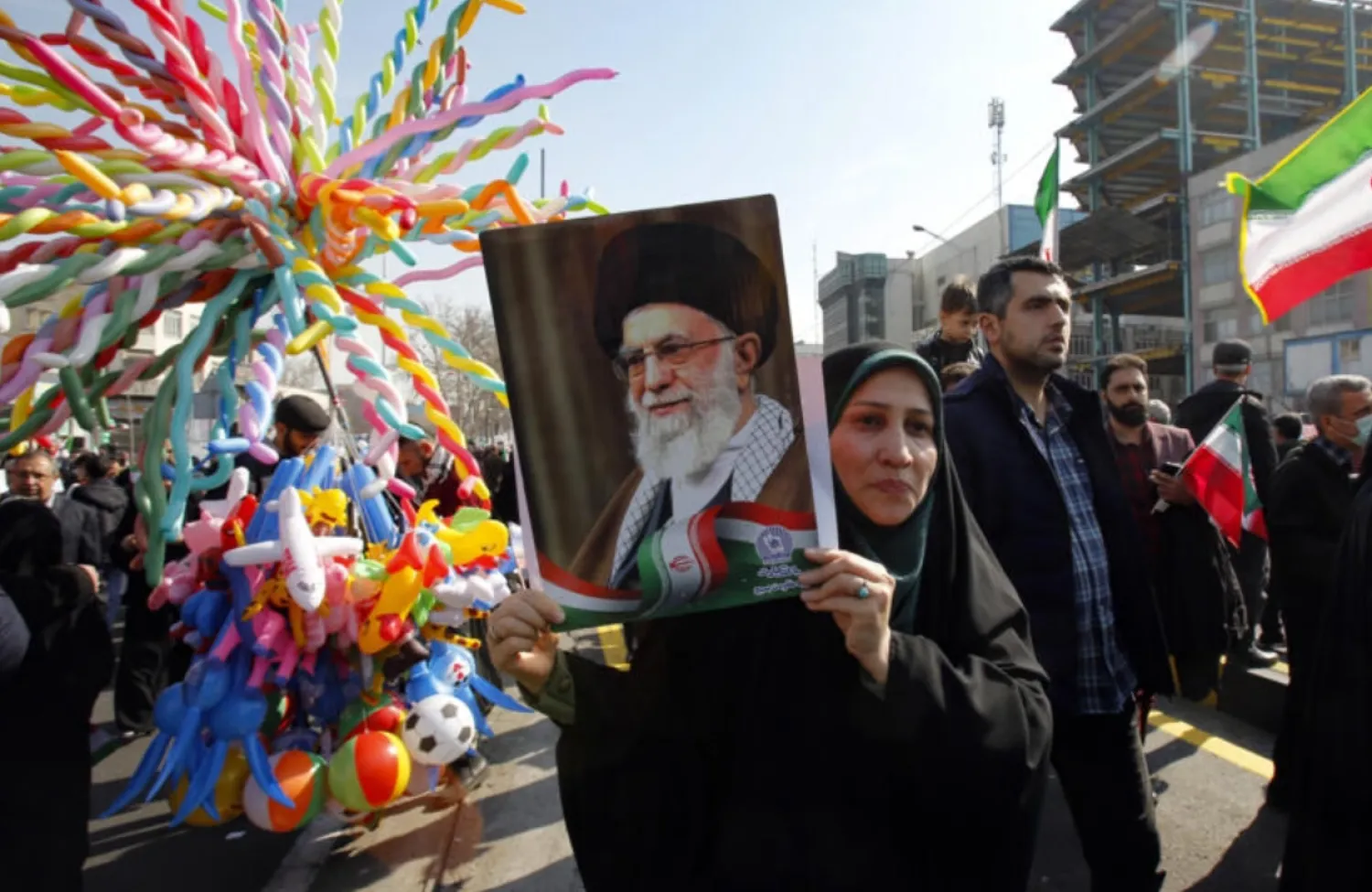Iran marked Sunday the 45th anniversary of the 1979 Revolution amid tensions gripping the wider Middle East over Israel’s continued war on Hamas in the Gaza Strip.
In a televised speech, Iranian President Ebrahim Raisi accused Tehran’s archfoe the United States, and some Western countries of backing “the Zionist regime’s crimes against humanity in Gaza.”
Raisi declared that “the death of the Zionist regime has come,” also proposing to expel Israel from the United Nations.
Thousands of Iranians marched through major streets and squares decorated with flags, balloons and banners with revolutionary and religious slogans.
Iranian authorities have mobilized thousands of soldiers, students, clerics and senior political and military officials to participate at the anniversary celebrations.
In Tehran, crowds waved Iranian flags, chanted slogans, and carried placards with the slogans “Down with the United States”, “Down with Israel” and “Down with the United Kingdom.”
Some burned US and Israeli flags, a common practice in pro-government rallies.
Processions started out from several points, converging at Azadi Square. State TV showed crowds in many cities and towns, claiming that “millions participated in the rallies” across the country, The AP said.
Meanwhile, AFP said crowds in Azadi Square held up portraits of the supreme leader, Ali Khamenei, as well as of the founder of the Islamic Republic, Ayatollah Ruhollah Khomeini, and popular general Qasem Soleimani, who was killed in an US strike in January 2020.
State media published a picture of some marchers hanging an effigy of Israeli Prime Minister Benjamin Netanyahu by a noose, according to Reuters.
Around Azadi Square, Iranian-made Qiam ballistic missiles, Shahed 136 drones and Simorgh satellite launchers were on display.
Iran’s Fars news agency said the military displayed a range of its missiles, including the Qassem Soleimani and Sejjil ballistic missiles, the Simorgh satellite carrier and drones at the square where people took selfies with them.
Many high-ranking Iranian officials attended the celebrations in Tehran, including hard-line President Ebrahim Raisi.
The commander of the powerful Islamic Revolutionary Guard Corps General Mohammad Salami and Gen. Esmail Ghaani, the head of the expeditionary force of Iran’s paramilitary Revolutionary Guard, also took part in the celebrations, while the head of the Judiciary body, Gholamhossein Mohseni Ejehi, was at the rally in the central city of Isfahan.
Raisi addressed the crowds in Azadi Square and called on the United Nations to expel “the Zionist regime,” as the crowds chanted: “Death to Israel.” Raisi also said, “the bombing of Gaza has to be stopped as soon as possible.”
He added: “What is happening in Gaza today is a crime against humanity, and those defending these criminals are the American regime and some Western countries.”
The Iranian President accused Israel of “violating 400 resolutions, laws, and international treaties” within the framework of “international organizations.”
Iran has been under crippling US sanctions since Washington's 2018 withdrawal from a landmark deal which granted itc sanctions relief in return for curbs on its nuclear program.









